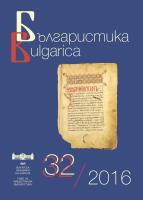
Книги 2015–2016
Selected bibliography in the field of Bulgarian Studies published in 2015-2016
More...We kindly inform you that, as long as the subject affiliation of our 300.000+ articles is in progress, you might get unsufficient or no results on your third level or second level search. In this case, please broaden your search criteria.

Selected bibliography in the field of Bulgarian Studies published in 2015-2016
More...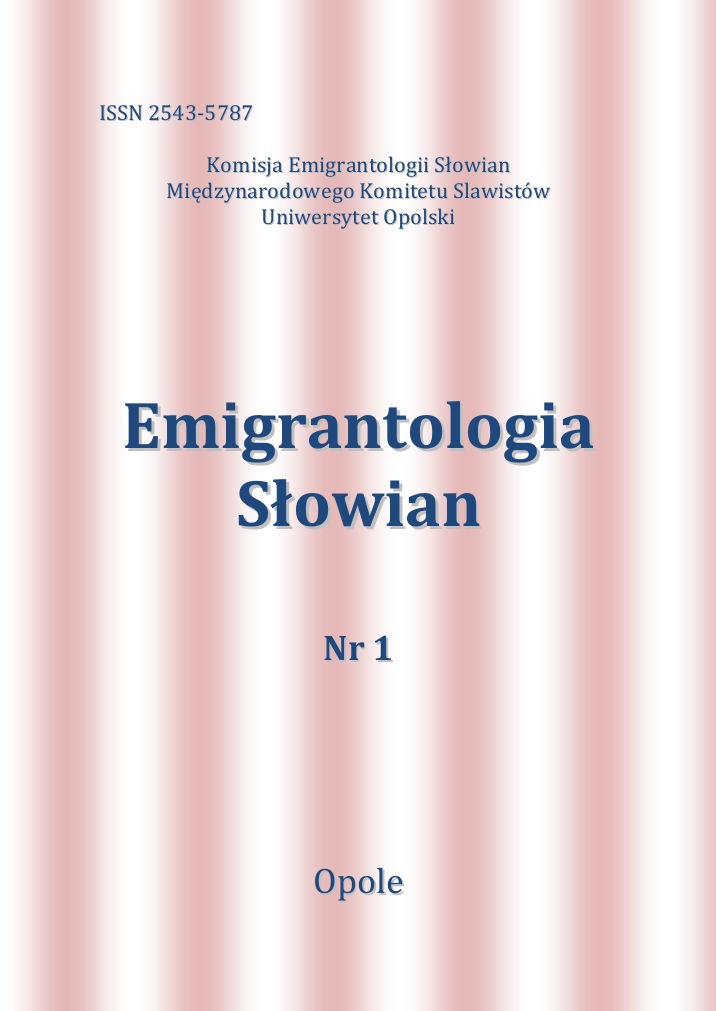
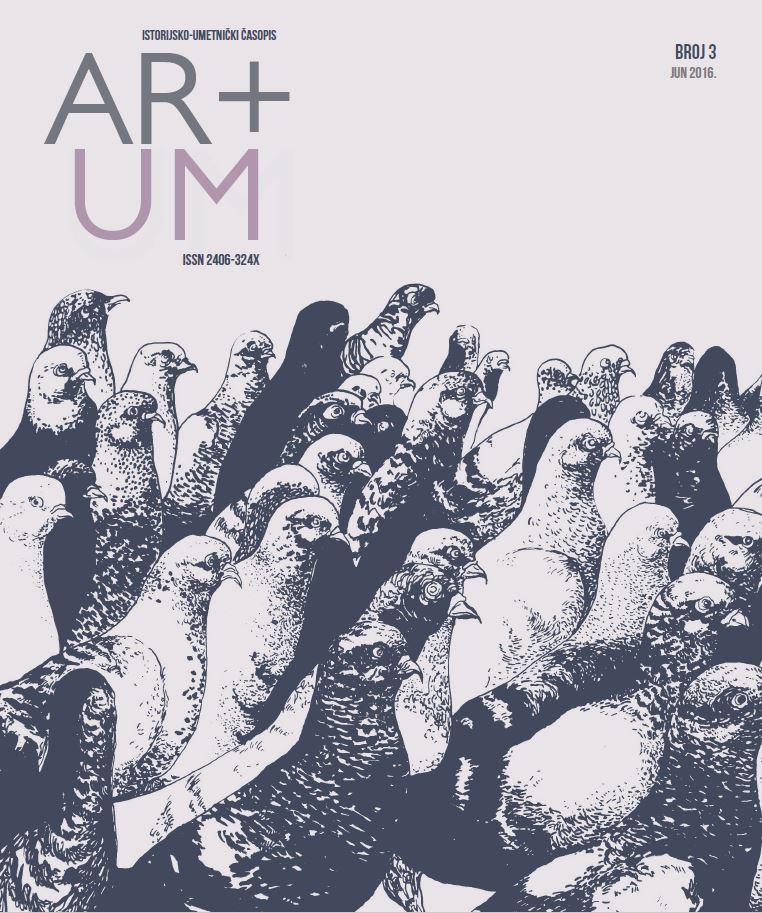
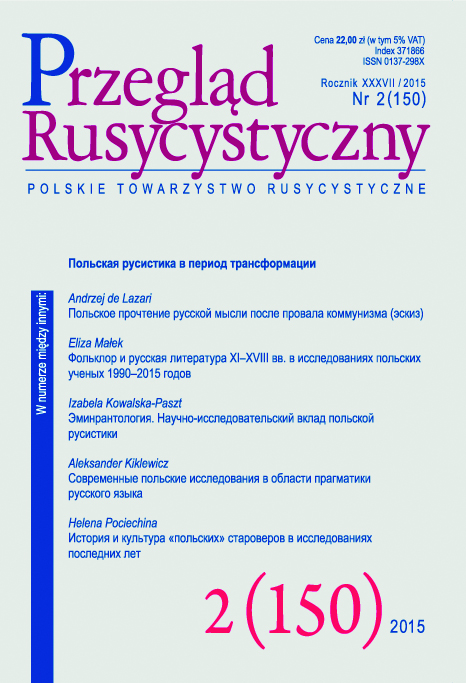
Based on the literary and cultural material, the article discusses two functions played by the term of emigrantology as a legacy of three waves of Russian emigration in the 20th century. The term was introduced by Lucjan Suchanek to the research space of Slavic emigration. It has systematized the area of intellectual and scientific self-reflection (including literary studies, historiography, philosophy and theology, and cultural studies), which developed in the community of Russian emigration. Additionally, the term provides modelling of the need for interdisciplinary and in the nearest future trans-disciplinary studies on the complex cultural phenomenon of Slavic emigrations. In this particular context, the article presents major research directions and achievements of Russian studies in Poland.
More...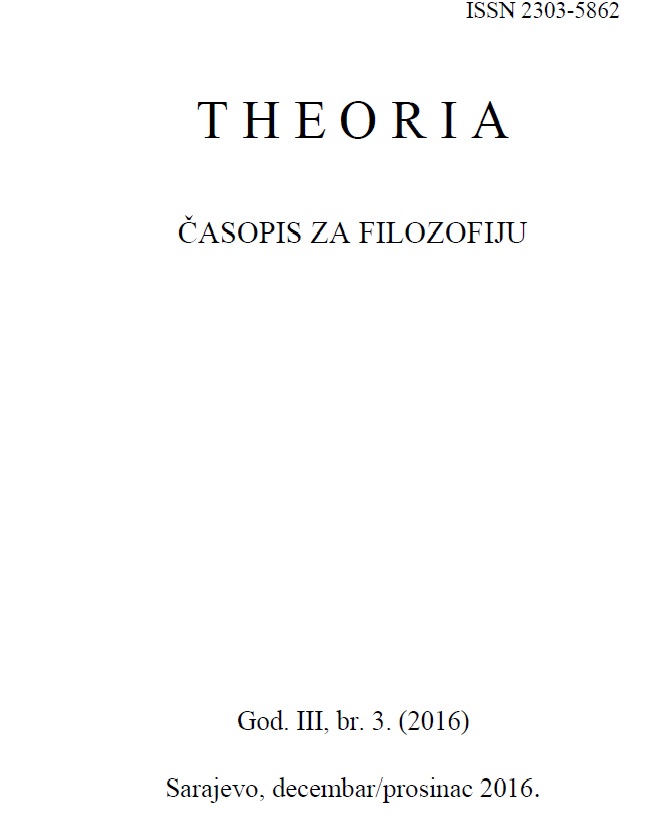
This paper studies the cultural, in this case literary (prose),communication between writers-representatives of different nations. After the determination of the term interculturality and function of culture in slowing the stigma, ghettoisation, passes to the analysis of literary and social activities of two writers,members of the same minority in Serbia - Laslо Vegеl and Laslo Blašković. In the case of different strategies (writing in their native or second language, orientation towards his national community, the relationship to the majority, according to a former state – Yugoslavia – and present, Serbia, treatment of political issues, etc.) Establishes their relationship to their own entity stronghold and possibilities of overcoming its possible oppression (the term Gayatri Chakravorty Spivak) or oppressiveness (termed Susan Stanford Friedman).
More...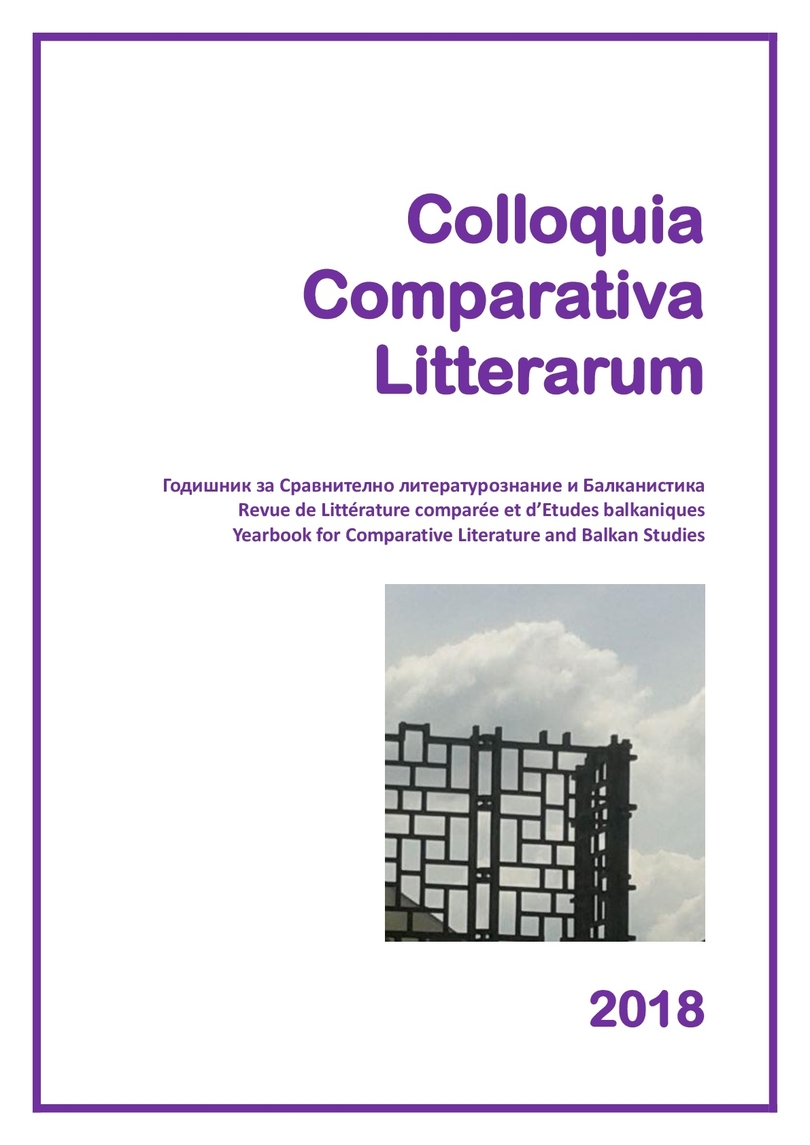
The Home of Literature is a metaphor of the literature and literary community. However, this metaphor is connected with the home obsession in contemporary post-Yugoslavian literatures. After the collapse of the Former Yugoslavia and Bosnian war, the home is one of the constant themes in contemporary literature in all area. We can see that in the poetry of the Bosnian-Slovenian poet Josip Osti, but also in the novels and essays of the famous emigrant writer Dubravka Ugrešić, as well as in the works of Peter Semolič, Miljenko Jergović, Vida Ognjenović, Jasna Koteska etc. The home is often present even in the titles of their works (House of Language by Osti, House of Words by Semolič, The House of Dead Scents by Ognjenović), and what is more important – the home is a counterpart of the literature as a place of the sense in the world that every day loses a part of its sense and good taste. The literary home is not a utopian place, because it is a collective image and it could be the dystopian place as well. We mark that through the works about the prison and concentration camps – The Damned Yard by Ivo Andrić, the novels and stories by Danilo Kiš, Dragoslav Mihailović, Branko Hofman, Miroslav Popović etc. At all events, the literary home is always a place of the reinventing of the sense.
More...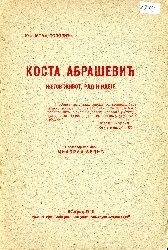
Issue of the United Workers' Art Group "Abrašević"
More...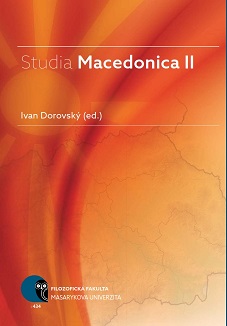
Author of this article deals with Zdeněk Urban’s (1925–1998) Macedonian studies, especially his innovative doctoral dissertation on the Faculty of Arts of the Charles University in Prague Beginnings of the Macedonian literature in relation to the other South Slavic literatures and their reflections in Czech one (in Czech; 1949). Urban’s other works were mainly aimed at Bulgarian, folklore or Sorbian studies. There are some supplements of this article: a list of contents of Urban’s doctoral dissertation, review of its supervisor (Antonín Frinta) and opponet (Julius Dolanský) and the list of his Macedonian contributions. Urban explained the genesis of the Macedonian literature in two phases. Initially the feudal ecclesiastically Slavonic culture became the bourgeois (works of Kărčovski and Pejčinovič) and only then the young Macedonian middle class took part in the cultural life during its struggle against the hellenization from the 1850s. As the first Macedonian written literature was closely bound up with the Bulgarian one, the Macedonian National Revival gained extrinsically pure Bulgarian traits. Urban interpreted this fact from the Marxist point of view: qualitatively more backward and quantitatively weaker Macedonian bourgeoisie learnt from richer and culturally more advanced Bulgarian one during the common struggle for the national school system, church and culture. This direct contact between both literatures was radically disturbed in the 1870s, when the revolutionary democrats got control of the Bulgarian literary field. Urban anticipated in his monograph From the History of Czech-Bulgarian Cultural Contacts (in Czech; 1957) and article Problems of the Comparative Studies of South Slavic Literatures in the 19th and the 20th centuries (in Czech; 1968) Ďurišin’s conception of theory of the interliterariness process with its most important ideas of dioecism (polyoecism) and biliterarity (polyliterarity) in his interpretation of the “borderline” Bulgarian-Macedonian literature phenomenons.
More...
This paper is about the co-relations between the Prague school and the Macedonian linguistics (in the first decades of its development), giving the possible influences from Theses. Travaux du cercle linguistique de Prague and the language theories that come from the thesis.
More...
The text is about the Czech translation of Vladimir Martinovski’s works, published by Slavomira Ribarova in Brno between 2011–2013. He is a renowned poet and musician coming from the younger generation of Macedonian poets. Martinovski participated in the international residential programme “Journey Across Europe-Remeasuring Cultural Space”, 2010–2011, which was coordinated by the publishing house “Windmills” (Větrné Mlýny) in the Czech Republic. The same house has later introduced the full paper edition of Martinovski’s “Quartets”, intended for reading, watching, singing and listening, to the Czech audiences and poetry scene. Ribarova‘s translations are carefully crafted in a correct and precise manner.
More...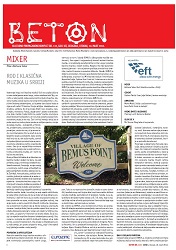
MIXER, Adriana Sabo: Rod i klasična muzika u Srbiji; CEMENT, Dalibor Plečić: Goce (nije Delčev) i sestre revolucije; ARMATURA, Marko Matić: Srbija u začaranom krugu, Ivan Zlatić: Kuda iz stečaja?; VREME SMRTI I RAZONODE, Predrag Lucić: Banka na Neretvi; BLOK BR. V, Mr. Stocca: Zbog tebe mi se povraća
More...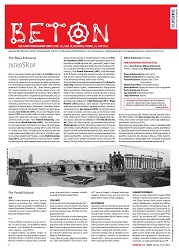
Biljana Andonovska: IntroSKop; NOVA MAKEDONSKA KNJIŽEVNA SCENA; Izbor: Jasna Koteska i Biljana Andonovska; Prevod s makedonskog: Biljana Andonovska; Rumena Bužarovska: Ne plači, tatino; Vladimir Jankovski: Večno sadašnje vreme; Pandalf Vulkanski: Skopske priče iz 2014., Četiri haikua; Dimitar Samardžiev: Emancipaternalizam; Nikola Madžirov: Pre nego što smo se rodili i druge pesme; Marko Petruševski: Bliskosti; Igor Isakovski: Višenamenski nožić; Lidija Dimkovska: Razlika
More...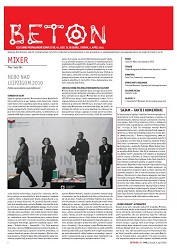
MIXER, Saša Ilić: Nebo nad Leipzigom 2010; ŠTRAFTA, Robert Alagjozovski: Makedonska literatura u ćošku; ARMATURA, Saša Ćirić: Srebrenico, sramoto moja; VREME SMRTI I RAZONODE, Tomislav Marković: Sajamski jadi mladoga Kecmana; BULEVAR ZVEZDA, Božović, Gojko; BLOK BR. V, L. Bodroža & T. Marković: Karta srpskog spasa (24)
More...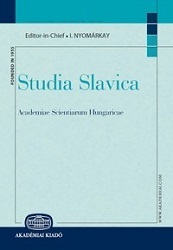
The paper considers travelogues of Yugoslav female writers Alma Karlin, Jelena Dimitrijević, Isidora Sekulić, Marica Gregorič Stepančič, Marica Strnad, Luiza Pesjak. These texts created in the first half of the 20th century in Serbian, Slovenian and German are on the periphery of the literary field and, with rare exceptions, do not belong to the canon. The most famous of these authors are Sekulić from Serbia and the German-speaking writer Karlin from Slovenia. Recently, the work of Dimitrijević has also become an object of attention of researchers. Other travelogues writers are almost forgotten. Identity problems, especially national ones, are a constant component of the travelogue genre. During a journey, the author directs his attention to “other /alien” peoples and cultures that can be called foreign to the perceiving consciousness. However, when one perceives the “other”, one inevitably turns to one’s “own”, one’s own identity. The concept of “own – other /alien”, on which the dialogical philosophy is based (M. Buber, G. Marcel, M. Bakhtin, E. Levinas), implies an understanding of the cultural “own” against the background of the “alien” and at the same time culturally “alien” on the background of “own”. Women’s travel has a special status in culture. Even in the first half of the 20th century the woman was given space at home. Going on a journey, especially unaccompanied, was at least unusual for a woman. According to Simone de Beauvoir, a woman in society is “different /other”. Therefore, women’s travelogues can be defined as the look of the “other” on the “other /alien”. In this paper, particular attention is paid to the interrelationship of gender, national identities and their conditioning with a cultural and historical context. At the beginning of the 20th century in the Balkans, national identity continues actively to develop and the process of women’s emancipation is intensifying. Therefore, the combination of gender and national issues for Yugoslavian female travelogues of this period is especially relevant. Dimitrijević’s travelogue Seven Seas and Three Oceans demonstrates this relationship most vividly: “We Serbian women are no less patriotic than Egyptian women… Haven’t Serbian women most of the merit that the big Yugoslavia originated from small Serbia?” As a result of this study, the specificity of the national and gender identity constructs in the first half of the 20th century in the analyzed texts is revealed. For this period one can note, on the one hand, the preservation of national and gender boundaries, often supported by stereotypes, on the other hand, there are obvious tendencies towards the erosion of the established gender and national constructs, the mobility of models of gender and national identification as well, largely due to the sociohistorical processes of the time.
More...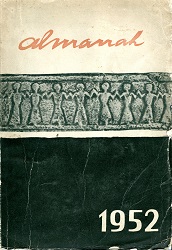
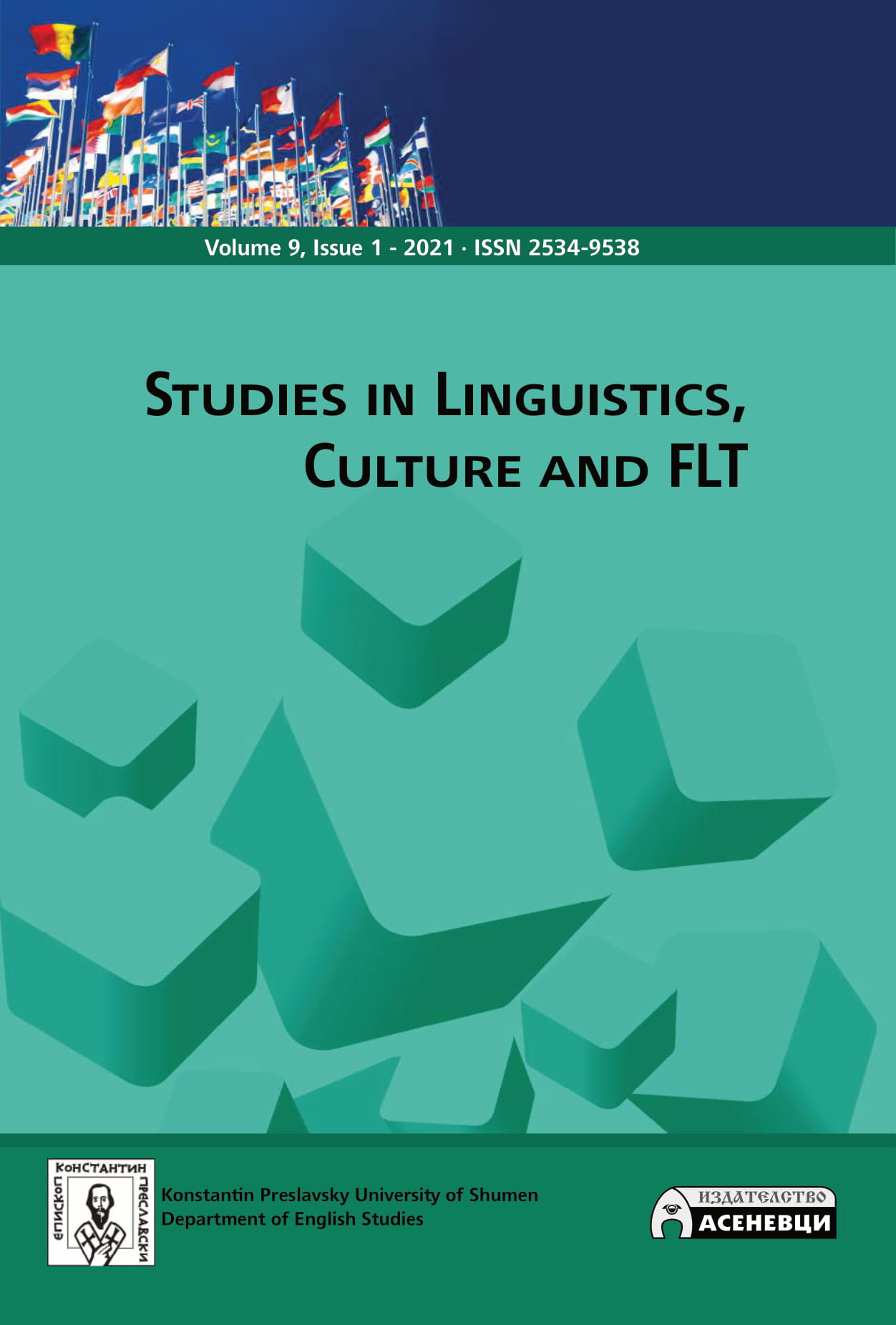
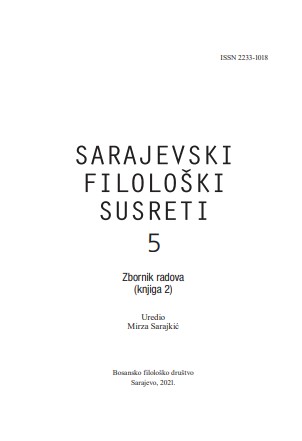
As the fundamental text for the study of artistic and literary avantgardes, Bürger’s Theory of the Avant-garde has been the subject of a wide and diverse critical reception. An especially contentious claim of Bürger’s is the one about the failure of neo-avant-garde art – a claim that cannot be separated from of his category of historical avant-gardes and the claim about the defeat of the pre-war avant-garde movements. Missing the construction of Bürger’s argumentation, different critics have pointed to different post-war artists and artistic movements which, through their work, revitalized avant-garde poetics with more or less success. However, by staying in the same framework of the Euroamerican capitalist West and its artistic system, these counterexamples could not offer a systemic intervention into Bürger’s theory. Due to its specific historical, social, and therefore cultural and artistic trajectory, the experience of Yugoslavia represents one of the possible points of departure for such an intervention. By focusing on existing interpretations of the relation between the Yugoslav avant-garde, neo-avant-garde and post-avant-garde, this article aims to show how the unique relation of the post-war avant-garde towards its tradition can contribute to the critical supplementation of Bürger’s theory and a more nuanced understanding of the possible relations between the neo-avantgarde and the avant-garde. In that sense, this article will try to show how the Yugoslav example is indispensable to a relevant discussion of artistic avantgardes in general.
More...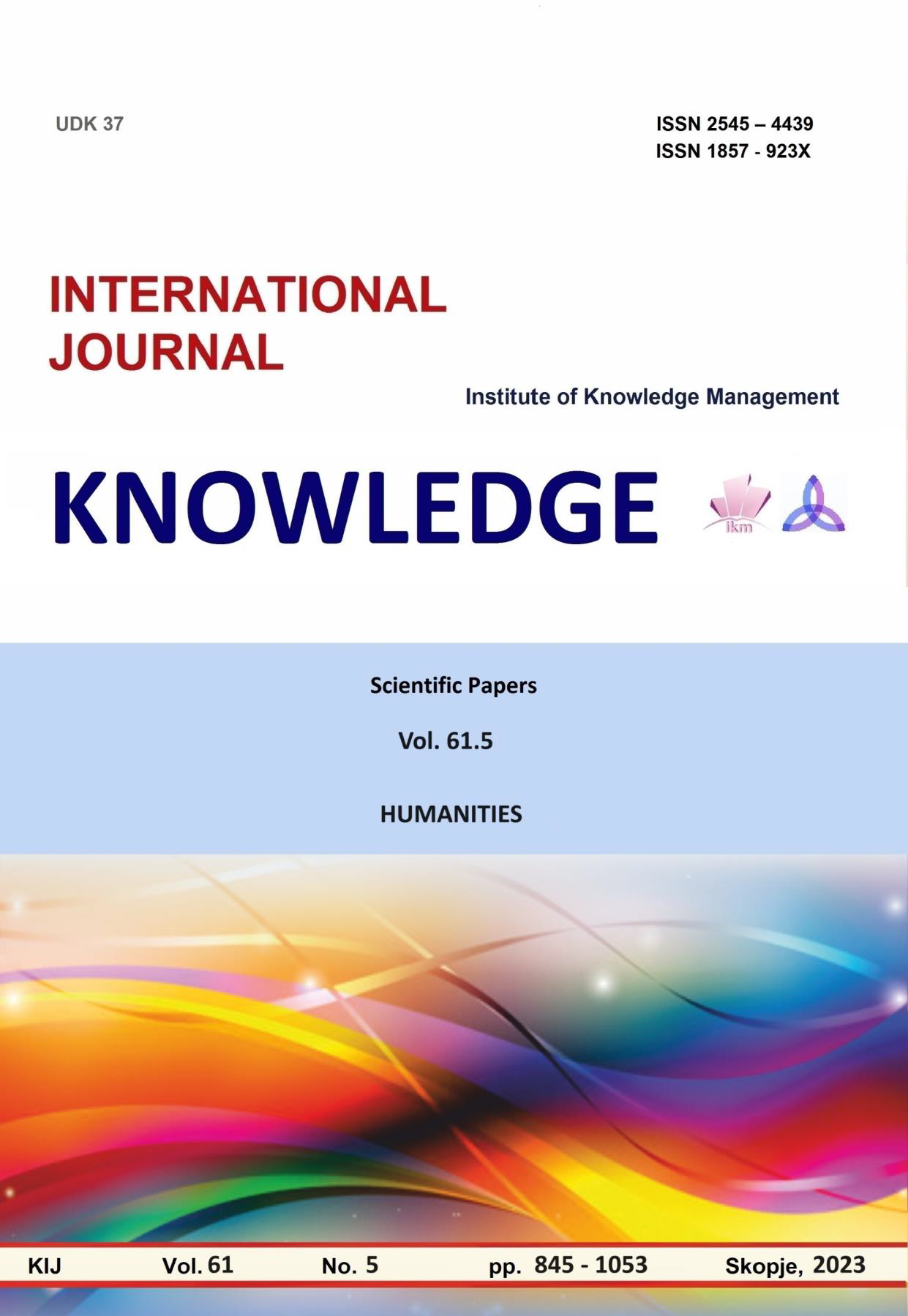
Nexati Zekeriya is one of the founders, especially of children's poetry and prose in the Turkish language in the Republic of North Macedonia. However, his exceptional contribution to the publishing of children's magazines (Sevinch and Tomurdzuk), of which he was the main and responsible editor from the foundation, and remained during the years when the first books for children in the Turkish language were published in the Republic of Macedonia, is also significant. In addition, Nexati Zekeriya is also significant for the affirmation of the Turkish literature and culture of the Republic of North Macedonia outside the borders of Macedonia, and above all in the former Yugoslav territories and in the Republic of Turkey. His book of short stories "Children from our street" represented the first serious breakthrough in the work of Turkish writers in the Republic of North Macedonia, not only in the Yugoslav territories, but also in the Balkans and beyond. Nexati Zekeriya's contribution to the affirmation of Macedonian poetry in the Republic of Turkey deserves special attention, and his translations of the poetry of Kocho Racin and Blaze Koneski were especially noticed. However, the place of Nexati in the field of short stories for children in the Turkish language in the Republic of North Macedonia is of exceptional importance. He was awarded the most prestigious Yugoslav award in the field of children's literature the Zmay Award for your contribution to Turkish children's literature in competition with 60 important Yugoslav children's writers.
More...
Although Turkish children’s literature in Macedonia starts with poetry, other literary genres like stories, children's plays, lullabies etc. are seen in the following years. However, the writers weren’t very successful in writing novels, despite all their efforts. Tomurcuk is a children’s journal which was published between 1957 and 2004 in Skopje. Although it was published as Sevinç and Tomurcuk for a while, then it came out as a single journal. The content of the journal which was addressed to primary school children consists of stories, comics, poems, essays, crossword puzzles etc. most of which were about the history, manners, customs, traditions and culture of Macedonian Turks. The primary objective for this was to raise awareness in the children on their own culture and their values. Besides its significant place in Macedonia Turkish children’s literature in terms of content, form and diversity of the writers, Tomurcuk also plays an effective and active role in regards to the targeted values to be taught. The main aim of this study is to establish the distinct values found in 33 issues of Tomurcuk Journals published between 1957 and 1990 to evaluate these values form the point of view of children’s literature.
More...
Along with the literature that developed in the Balkans in every different period of history, poetry has dealt with and revealed the lives of nations stuck in limbo with all its vivid examples. Although poetry, as a literary genre, is written for aesthetic purposes, one of its main purposes is to describe the period of which it is a product and to make the poets' cries felt. With the withdrawal of the Ottoman Empire from the Balkans, poetry left a great impact on the thought world of Turkish poets who remained beyond the Ottoman-Turkish border, and became the interpreter of their feelings, on issues such as lost land, religion, homeland, identity, existence. In our study, we will discuss the reflection of the concerns of the poet Abdülfettah Rauf, who was born in Skopje in 1910, in his poems, in which he treats revenge as a grieving conscience. The poet witnessed the periods when the most important political balances changed on the world history stage. Born in the last days of the Ottoman Empire in the Balkans, it was born during the First Balkan War and the Second World War. He was a child in the period when the magnificent civilization retreated after the Balkan War, and he fought in World War I and World War II until his death (1967). He lived and suffered deeply during the World War and Yugoslavia periods. Abdülfettah Rauf wrote his poems during the years that we can consider as a dark period in the historical development of Macedonian Turkish literature. When we look at his poems that have come to light in recent years, the subjects he is most concerned about are 'homeland'. In our analysis, we will discuss the problem of homeland that he puts on Skopje in his poems Yurdumda Ben ve Bende Yurdum, Şehîde-i Şedâ’id-i Üskübüm İçin, Vefâsız Yurda İlânı Nefret through the cities. With a comparative method, the influence of Yahya Kemal Beyatlı on these poems of Abdulfettah Rauf will be emphasized.
More...